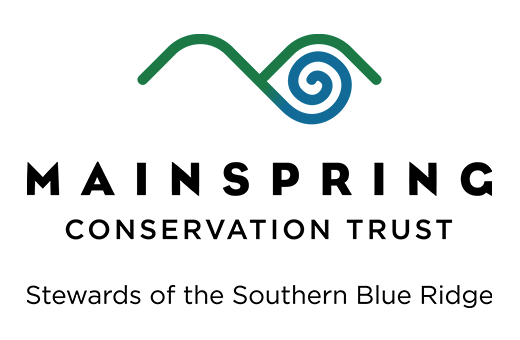The economics of conservation
The Franklin Press, February 7, 2014
The majority of lands in western North Carolina are under private ownership. In Macon County, for example private owners control 64 percent (180,000 acres) of the land.
Land owners can play an important role in ensuring the benefits of nature, such as maintaining water quality, connecting natural areas, and providing wildlife habitat.
In North Carolina there are options available that help keep private land intact as conserved natural areas or as working farms and forests through tools that include conservation easements and by enrolling land to be taxed at its “present use value.”
A conservation easement is a voluntary legal agreement between a landowner and a qualified conservation organization such as a land trust. Easements limit development and sometimes require conservation measures such as fencing livestock out of streams, but they can be written to allow forestry and agriculture.
Properties designated as conservation easements are assessed at a lower tax rate, saving landowners significant money in property taxes.
Land trusts help landowners design conservation plans tailored to their property and their individual needs, and they conduct yearly monitoring to ensure that the terms of the agreement are being upheld. Most conservation easements are held in perpetuity and the terms of the agreement pass on to a new owner if the property is sold or bequeathed, which makes them a popular tool for people who want to ensure that their land will be conserved long into the future.
There are approximately 106 conservation easements in Macon County, totaling 3,550 acres – this number includes the various tracts of the Needmore Game Lands. LTLT (Land Trust for the Little Tennessee) and Highlands-Cashiers Land Trust are two of the primary organizations in Macon County that work with landowners to conserve land through easements Many of these easements are in rich bottomlands along the Little Tennessee and its tributaries, protecting farmland, floodplains, and valleys, areas rarely protected by public lands. Other easements protect rare habitats, headwater streams, or scenic mountain vistas.
Another option available to landowners is to enroll qualified land to be taxed under “present use value.” Since 1973, land in agriculture, horticulture, and forest can be taxed by its “present use value” rather than its “highest and best use value.”
For example, the value of forest land may be taxed for its value as a working forest rather than its value as residential or commercial property. Because the land is valued at a lower rate, the taxes on that land are also lower. In 2008, land managed for wildlife habitat using a plan approved by the NC Wildlife Resources commission became qualified for present use value assessment. More recently, in 2011, land that is taxed under present use value when a conservation easement is conveyed is continually taxed a present use value rates, which is generally lower.
Both conservation easements and present use value have certain standards that must be met before land can qualify. For instance, only land that has excellent conservation value, containing wetlands, streams, forests, or other intact natural features may qualify for a conservation easement. A small wooded 2 acre lot would typically not meet these standards unless it had other outstanding qualities, such as containing a rare bog or significant historical structure. To qualify for present use value assessment, there are also requirements that must be met, such as minimum acreage requirements (e.g., forest land must be at least 20 acres).
Rewarding landowners for conservation measures helps ensure nature’s benefits, such as clean water and ample wildlife habitat, and they can also bring economic benefits to the entire community. For example, Coweeta LTER scientists analyzed 12 years of land transactions in Buncombe County. They found that conservation easements raised neighboring properties’ values. On average, there was a 3 percent increase in property value for each conservation easement within a property’s “viewshed.”
Landowners interested in improving the natural and historical conservation value of their land and reducing their property taxes may want to further research these options. Your neighbors may thank you.
For more information about conservation easements or present use value options, contact LTLT’s Land Protection Manager John Culclasure at 524-2711, extension 313 or [email protected] or Highlands-Cashiers Land Trust at 526-1111 or [email protected]. For questions, comments, or suggestions on topics community members would be interested in from a Coweeta LTER perspective, send an email to [email protected] or write Coweeta Listening Project, 210 Field St., Room 204, UGA Athens, GA 30602.




